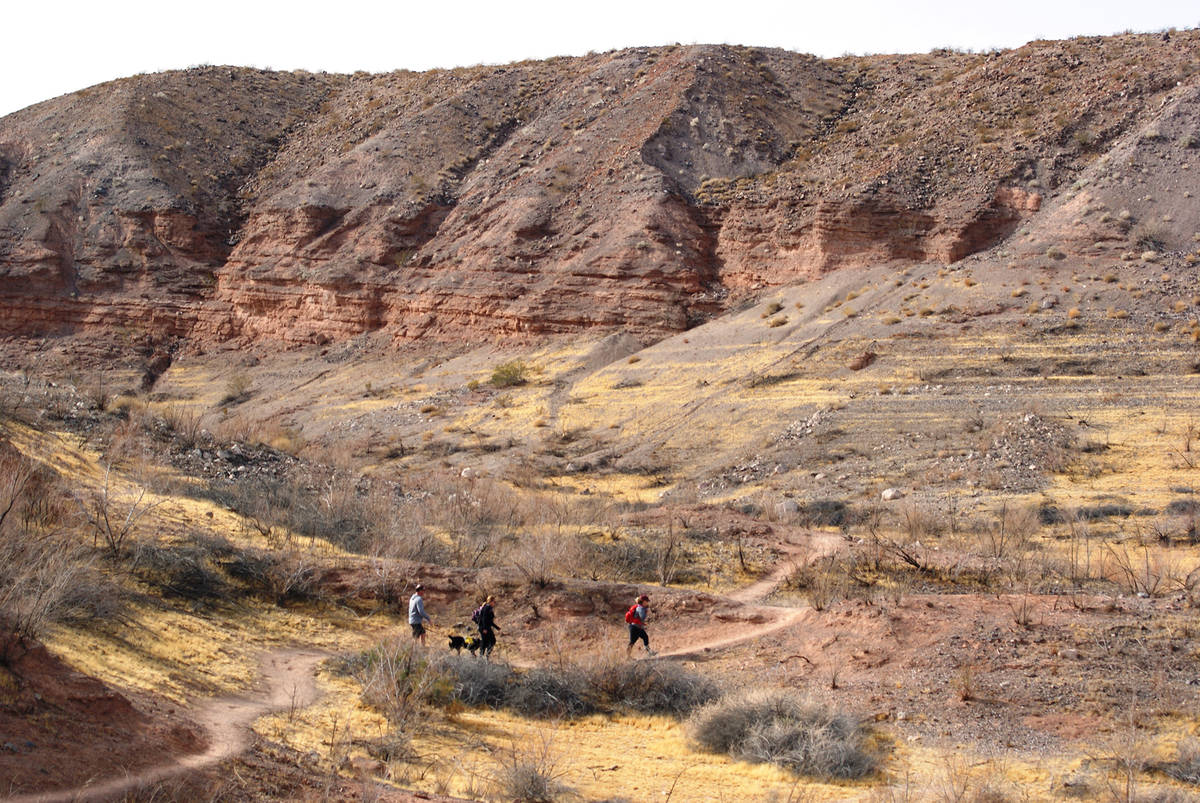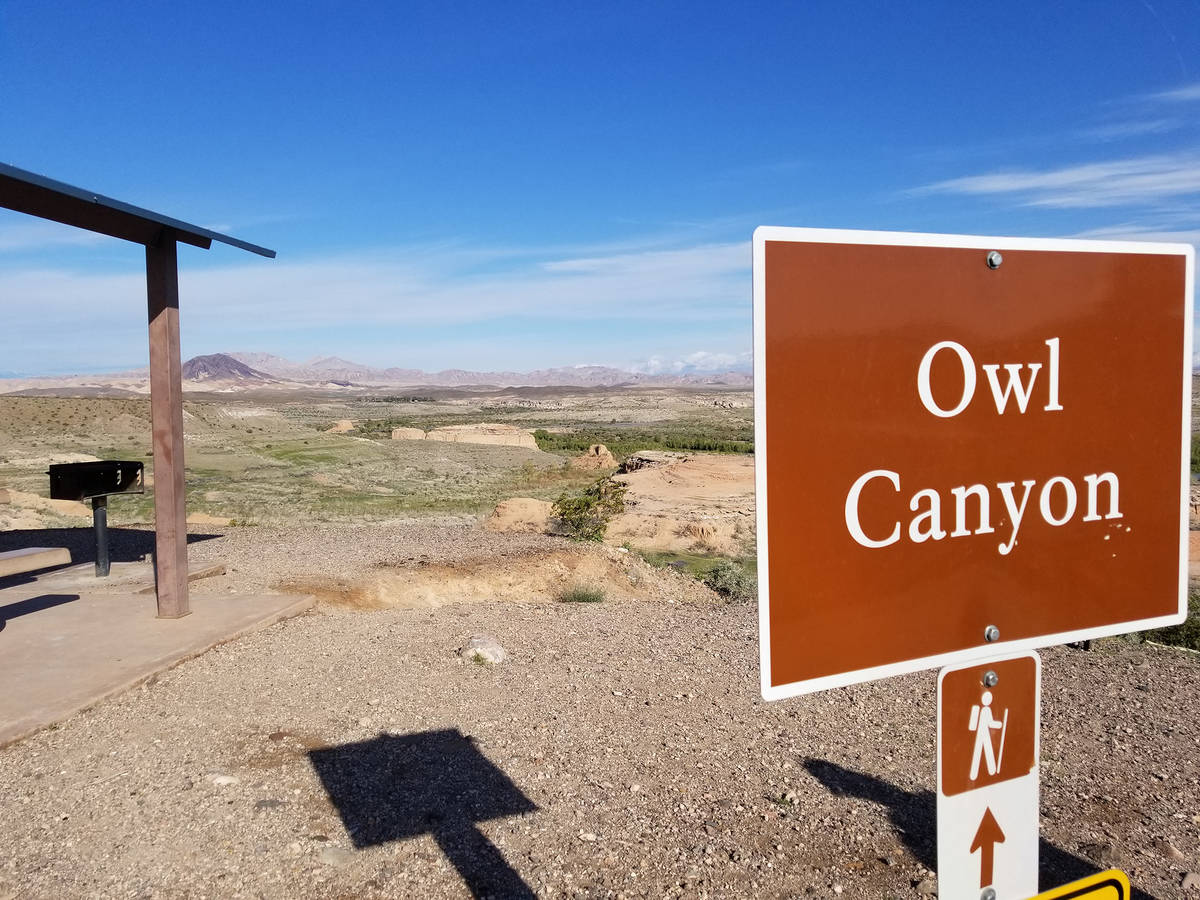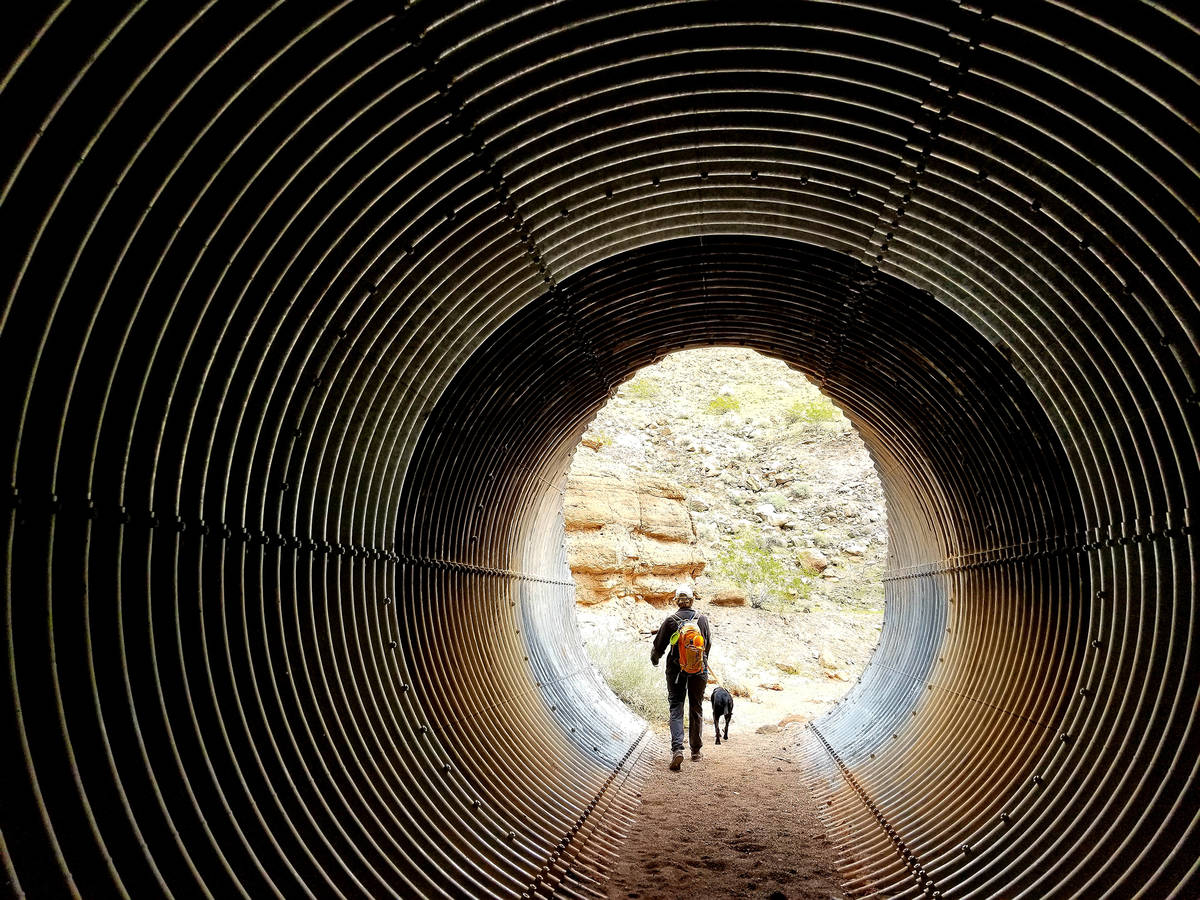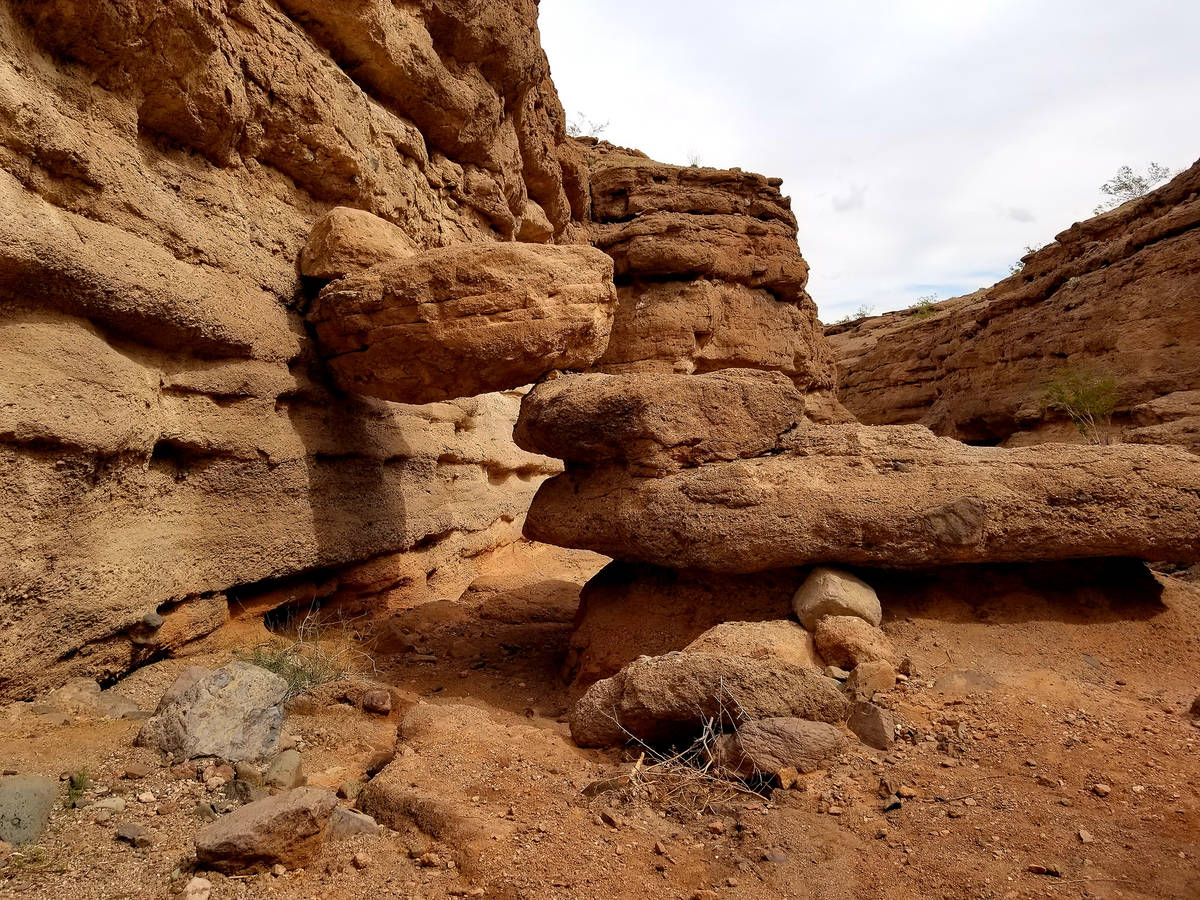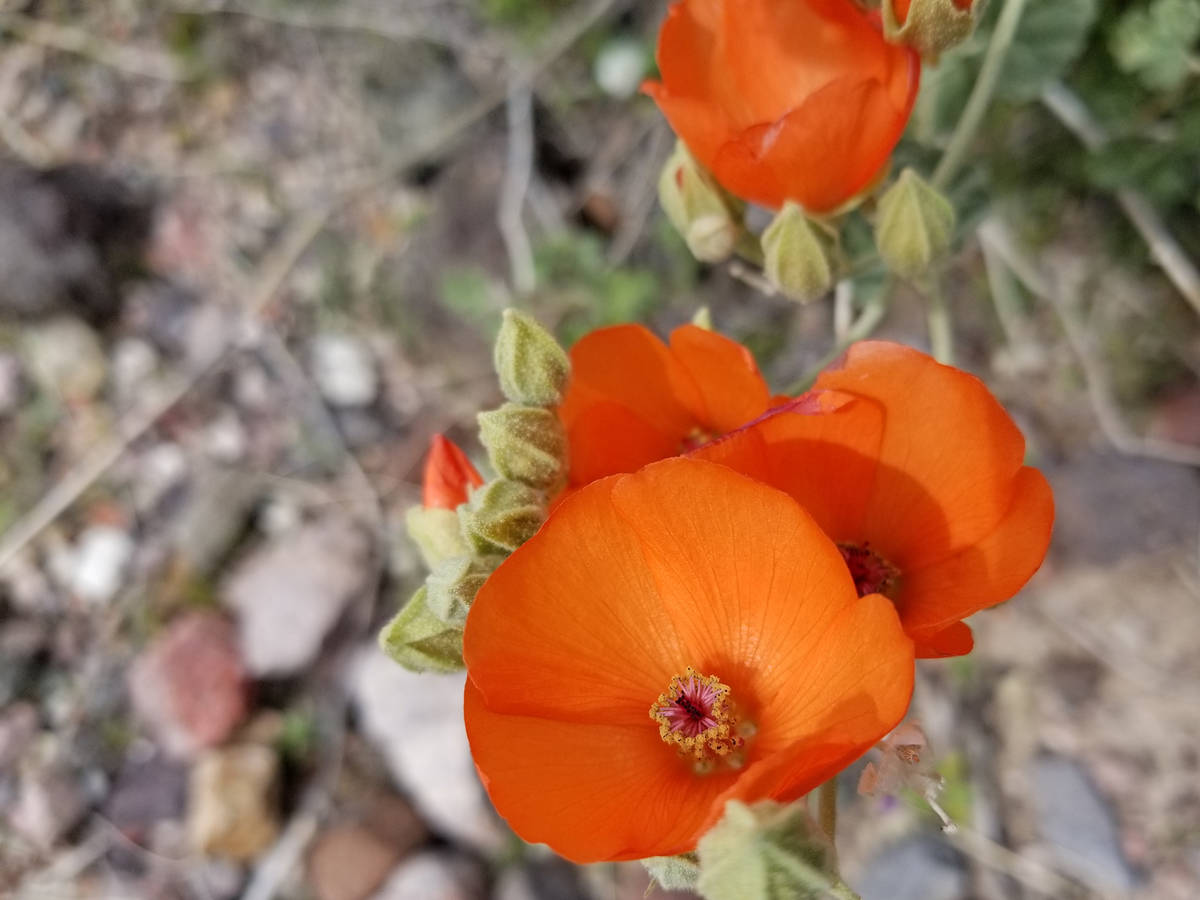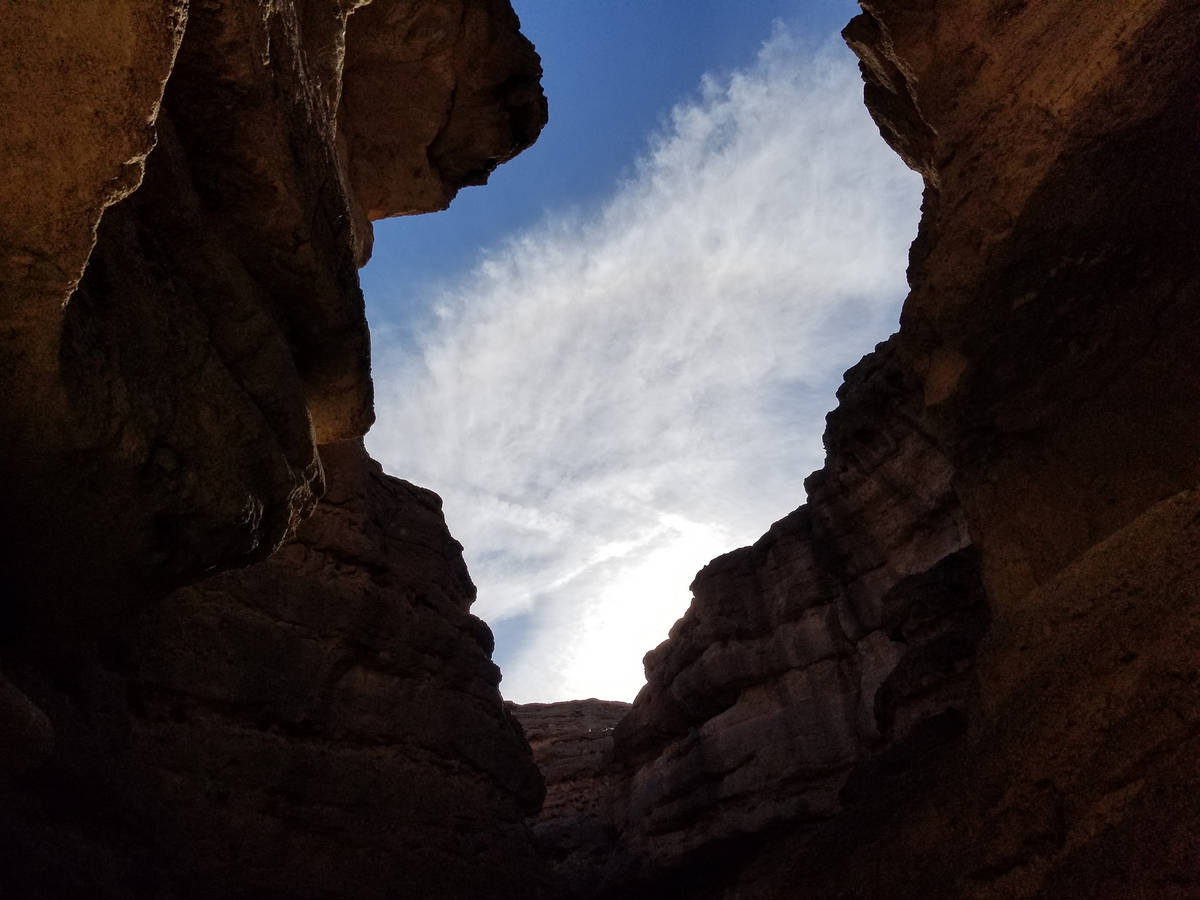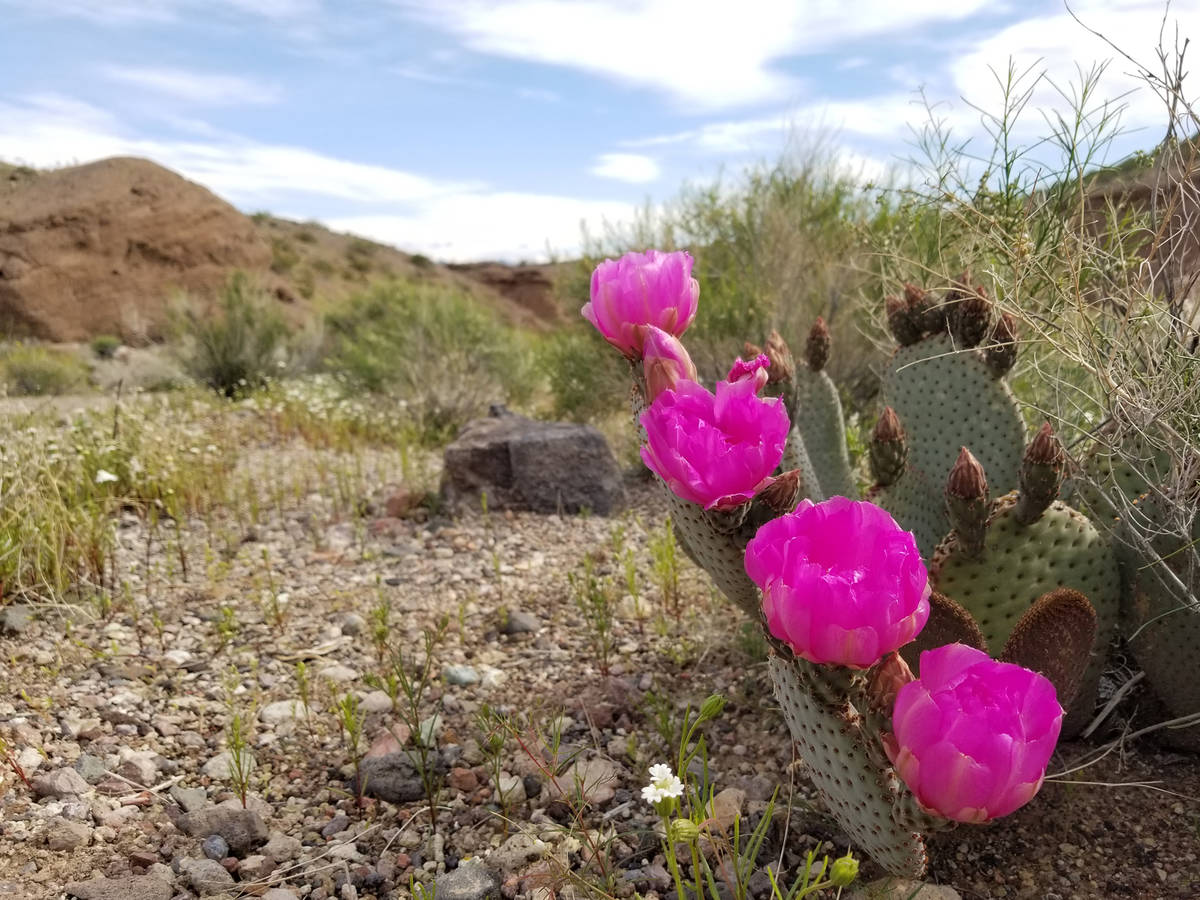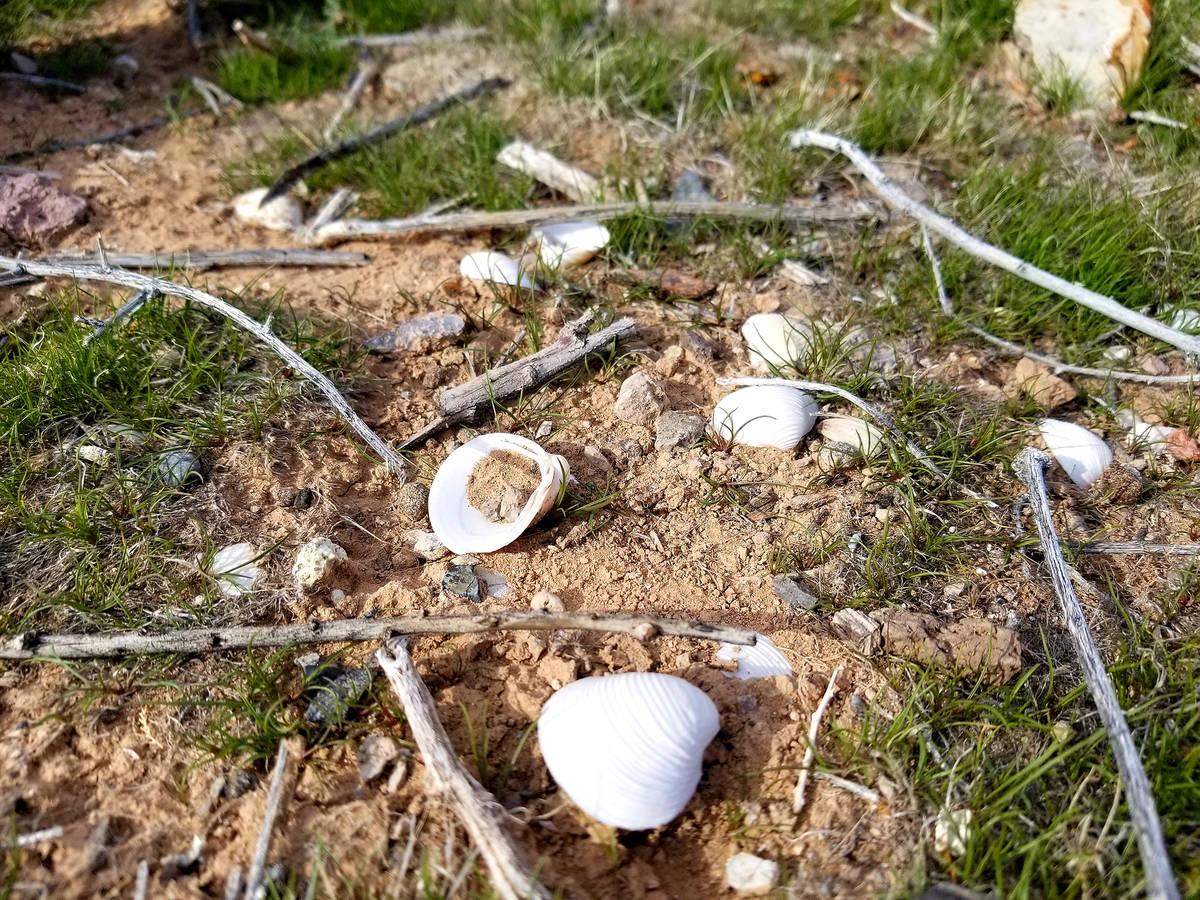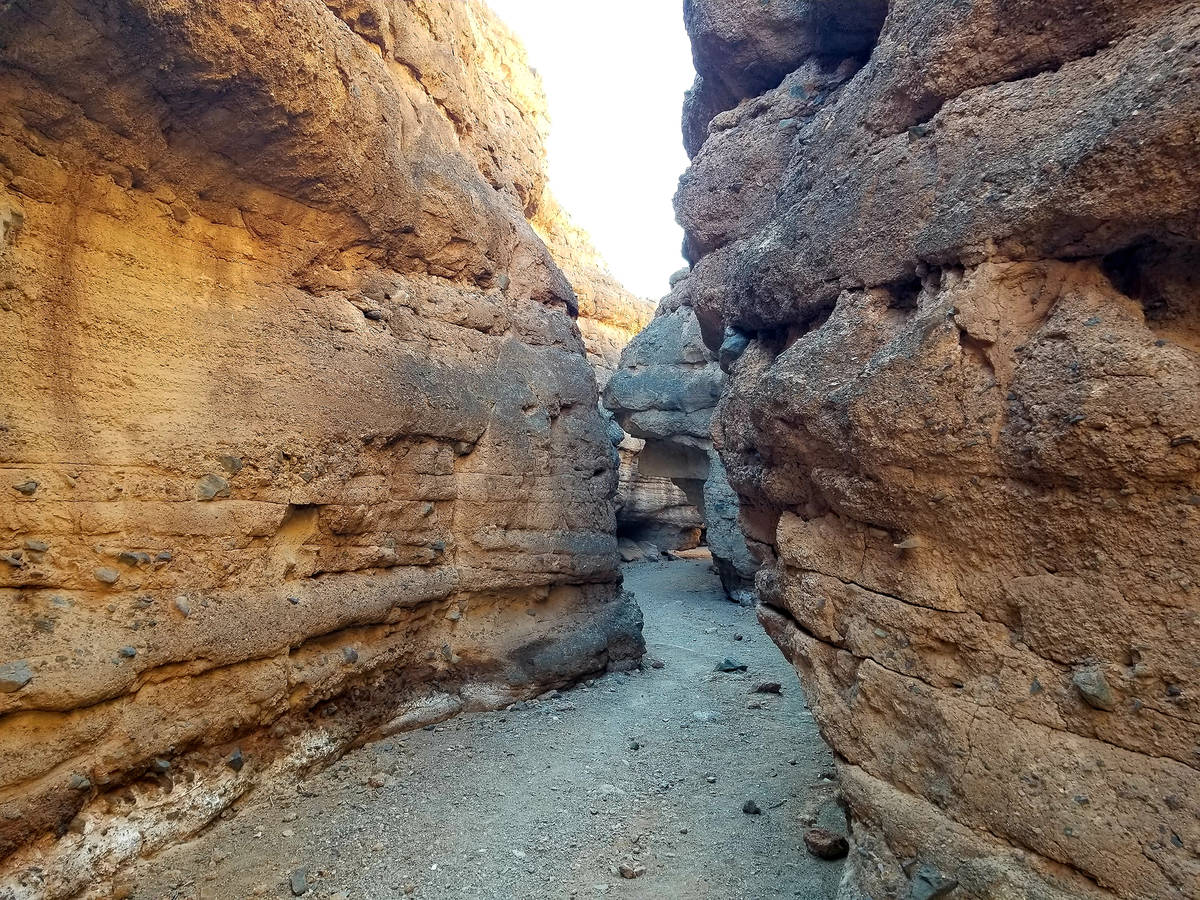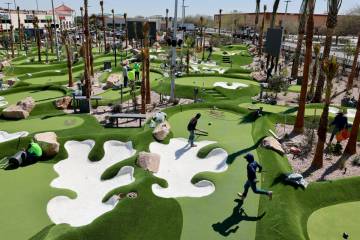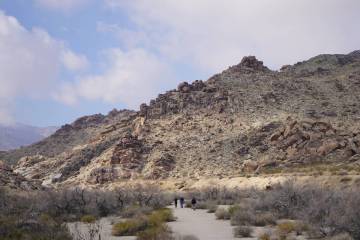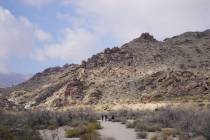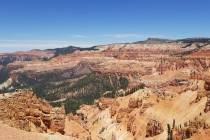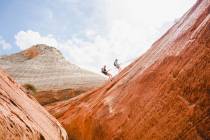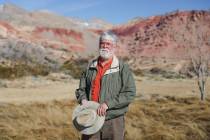Lake Mead’s Owl Canyon Trail winds through striking rock features
Owls are elusive and wildflowers will be hard to spot this spring along Lake Mead’s Owl Canyon Trail, but dramatic geology is always a guarantee.
The trail’s star attraction is a narrow slot canyon that gets its name from the heart-faced barn owls that occasionally have roosted there. The only birds hikers typically see around the canyon are midnight-black ravens.
Depending on the day’s weather conditions, March and April are ideal months to visit Owl Canyon.
The 2.2-mile out-and-back hike is labeled moderate by the National Park Service, which manages the 1.5 million-acre Lake Mead National Recreation Area east of the Las Vegas Valley’s sprawl. Parts of Owl Canyon Trail are shaded by towering and narrowly separated walls, but the park service advises against hiking when temperatures begin to rise dramatically. The vast openness of Lake Mead lands makes it impossible for summer hikers to escape the sun’s harshness.
The official start of Owl Canyon Trail is a perch high above Las Vegas Bay and provides expansive views of the dammed waters that attract boaters, picnickers, anglers, hikers and kayakers. The trailhead is in the first parking and picnic area on the left after motorists turn into the 33 Hole Overlook off Lakeshore Road.
The initial steep drop and loose rocks of the trail’s descent can be intimidating, so an alternative would be starting from the second parking area. That descent is milder and takes hikers near the water’s edge, but the trip will take a bit longer. Once near lake level, follow unmarked paths on the left that lead back to the area of the broad wash just below Owl Canyon trailhead. There are no signs for guidance, but the paths are well-worn, and there’s the knowledge that the short slot canyon is along the wash’s path and located in the opposite direction of the lake and toward the craggy River Mountains.
Below the bluffs from either parking area, as the trail and wash wind their ways toward Owl Canyon, the surface you’ll be walking on is old lake bed complete with scattered clam shells and 1970s-era aluminum can pull-tabs. Years ago, Lake Mead’s higher waters submerged the wide wash area leading to the mouth of Owl Canyon.
Keep to the left as the packed dirt trail climbs slightly and then dips down to the more gravelly and narrowing wash. In a good year, spring’s ephemeral desert blooms along the way would include fuchsia filarees, cream-colored rock nettles, orange globe mallows and the purple blooms of scorpion weed. Hearty yellow brittlebush flowers are typically at their brightest.
“Sadly, I have to report that this year will be a lean year on wildflowers,” said Lake Mead vegetation biologist Carrie Norman when recently asked for a 2021 wildflower forecast. “There are typically lots of annuals popping up right now, but my crew has been out looking, and they have not reported anything green out there. This is a result of the record-breaking days with no rain we experienced last year. I know we received some rain/snow in the valley, but I am not sure it was enough to help the annuals rebound.”
Beavertail cactus usually start blooming in bright fuchsia during the second half of March, but they appeared drought-beaten in February. Still, I’ll be snooping around this spring for wildflower warriors like globe mallow, rock nettles and scorpion weed.
The Owl Canyon hike continues a few hundred yards along the wash into the slot canyon, and hikers should keep to the left. Sculpted by flash floods and other waters for thousands of years, the conglomerate rock walls are whimsically and elegantly shaped in ways similar to their more famous slot canyon cousins in Utah and Arizona. The light and shadows are playful in Owl Canyon, and the place is still and serene if you’re lucky enough to be there without crowds.
After its brief gifts of shade and tranquility, the narrowest stretch of the canyon begins widening again. Looking up, hikers can see a section of Lakeshore Road, and a single culvert provides continued passage up Owl Canyon.
Next, hikers pass fallen chunks of rock and can look up to see part of the River Mountains Loop Trail. A pair of culverts allow passage underneath and continuation up the colorful wash toward the rugged River Mountains.
Typically the trail’s round-trip distance is 2.2 miles, but options include lengthening the way in and back out or opting for a complicated loop.
In past years, I’ve seen hanging gardens of brittlebush, rock nettles, primroses and scorpion weed growing from cracks in the rocks. Once a bighorn sheep on a mountaintop peeked down from high above.
Be on the lookout for lizards skittering across the rocky desert floor and handsomely masked black-throated sparrows singing from creosote bush perches. Rattlesnakes and chuckwallas are among the reptiles calling this area home.
After taking in views of Lake Mead’s remarkable geology and possibly spotting a lizard or a desert-dwelling bird, it’s time to turn your hiking boots around and enjoy a second passage through Owl Canyon. Different rock features stand out on the return trip down the wash. You might hear a pair of vocal ravens in flight above an opening between rock walls that looks like a skylight.
The trail continues toward Lake Mead and its parking lots and reality. After a steep but short final ascent and before getting into your car, there’s still more to see — maybe resting American white pelicans in Lake Mead’s waters down below or possibly turkey vultures circling high above. Hiking Owl Canyon Trail is always a few hours well spent.
Find more information about Owl Canyon and other trails at Lake Mead National Recreation Area at nps.gov/lake/planyourvisit/maps.htm.



